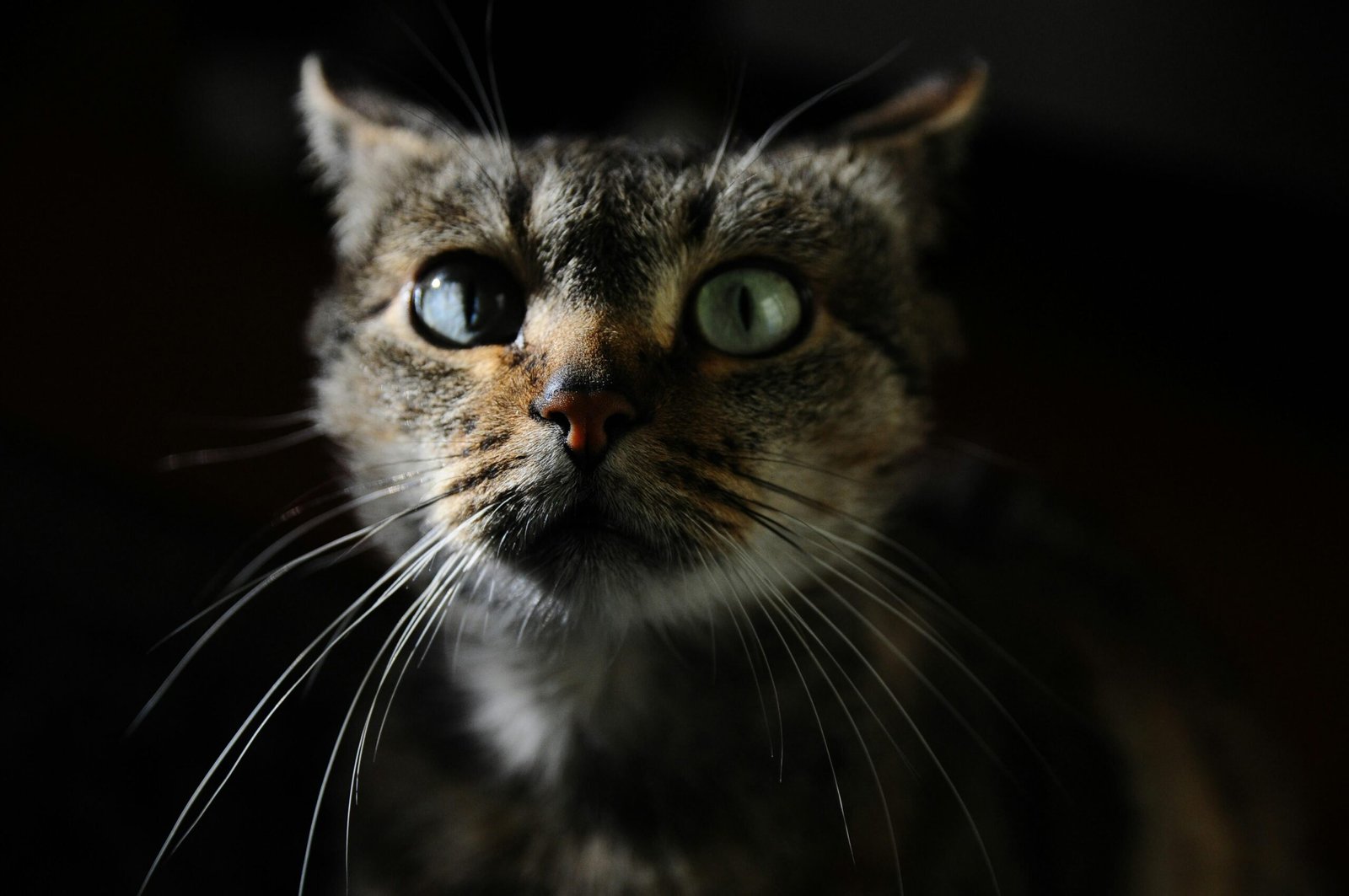Why Does My Cat Meow in the Litter Box? Decoding Feline Behavior
If you’ve ever heard your cat meowing while using the litter box, you might have wondered what’s going on in their feline mind. While it may seem unusual or even alarming, this behavior can stem from a variety of reasons—some harmless and others requiring attention. Cats are naturally expressive animals, and their vocalizations often serve as a way to communicate their needs or discomfort. From signaling pain to simply expressing annoyance, understanding why your cat meows in the litter box is key to ensuring their well-being. In this blog post, we’ll explore the potential causes behind this behavior, how to address it, and when to seek professional help.
Common Reasons Why Cats Meow in the Litter Box
Cats meow in the litter box for a variety of reasons, ranging from physical discomfort to emotional triggers. Here are some of the most common explanations:
Urinary Tract Issues
Cats suffering from urinary tract infections (UTIs) or blockages may meow due to pain or difficulty urinating.Digestive Problems
Constipation, diarrhea, or other gastrointestinal issues can cause discomfort, leading to vocalizations during elimination.Litter Box Preferences
If your cat dislikes the type of litter, the cleanliness of the box, or its location, they may express frustration through meowing.Stress or Anxiety
Changes in the household, such as moving or introducing a new pet, can make cats anxious and vocalize in the litter box.Territorial Behavior
In multi-cat households, cats may meow to assert dominance or signal their presence to other felines.
Understanding these reasons can help you identify whether the behavior is a sign of a minor issue or something more serious.
Signs That Your Cat Needs Veterinary Attention
While occasional meowing in the litter box may not be a cause for concern, certain behaviors warrant a trip to the vet. Here’s what to watch for:
Frequent Vocalization
If your cat consistently meows every time they use the litter box, it could indicate an underlying health issue.Straining During Elimination
Cats that strain to urinate or defecate may be experiencing a blockage or infection, which requires immediate care.Blood in Urine or Stool
The presence of blood is a red flag and should be addressed by a veterinarian promptly.Changes in Litter Box Habits
Avoiding the litter box, urinating outside of it, or excessive digging can signal discomfort or illness.Lethargy or Loss of Appetite
These symptoms, combined with litter box meowing, may indicate a systemic health problem.
If you notice any of these signs, consult your veterinarian to rule out serious conditions like urinary tract infections or kidney disease.
Check this guide 👉Why Does My Cat Meow at Night? Best 7 Expert Tips!
Check this guide 👉Why Does My Cat Not Meow? Best 7 Expert Care Tips!
Check this guide 👉How to Stop a Cat in Heat from Meowing: Best 7 Expert Tips!

Behavioral Sign | Possible Cause |
|---|---|
Frequent Vocalization | Pain or discomfort during elimination |
Straining in the Box | Urinary blockage or constipation |
Blood in Urine or Stool | Infection, injury, or internal bleeding |
Avoiding the Litter Box | Dislike of litter, cleanliness, or location |
Excessive Digging | Attempting to find comfort or avoid pain |
How to Address Litter Box Meowing
If your cat’s meowing in the litter box is behavioral rather than medical, there are steps you can take to address the issue. Here’s how to create a more positive litter box experience:
Keep the Box Clean
Scoop the litter box daily and change the litter regularly to ensure it remains inviting for your cat.Choose the Right Litter
Experiment with different types of litter to find one your cat prefers, whether it’s clumping, non-clumping, scented, or unscented.Provide Multiple Boxes
In multi-cat households, provide one litter box per cat plus an extra one to reduce competition and stress.Relocate the Box
Place the litter box in a quiet, accessible location away from loud appliances or high-traffic areas.Reduce Stress
Use calming products like pheromone diffusers or create a peaceful environment to ease anxiety.
By addressing these factors, you can minimize your cat’s discomfort and discourage unnecessary meowing.
Preventive Measures to Avoid Future Issues
Preventing litter box meowing starts with proactive measures to ensure your cat feels comfortable and healthy. Here’s how to stay ahead of potential problems:
Regular Vet Check-Ups
Schedule routine veterinary visits to catch and treat health issues before they escalate.Monitor Diet and Hydration
Provide a balanced diet and fresh water to support urinary and digestive health.Observe Behavioral Changes
Pay attention to changes in your cat’s habits, as these can signal early warning signs of trouble.Maintain a Consistent Environment
Minimize sudden changes in your home to avoid stressing your cat unnecessarily.Encourage Play and Exercise
Keep your cat physically and mentally stimulated to reduce anxiety-related behaviors.
Taking these preventive steps can help ensure your cat remains happy and healthy, minimizing unwanted vocalizations.
Exploring Emotional Triggers for Litter Box Meowing
Sometimes, emotional factors play a significant role in why your cat meows while using the litter box. Here’s how to identify and address these triggers:
Fear of the Litter Box
A previous negative experience, such as pain during elimination, may cause your cat to associate the litter box with fear.Territorial Anxiety
In multi-cat households, dominant cats may intimidate others, leading to stress-induced vocalizations during elimination.Environmental Changes
Moving furniture, introducing new pets, or even loud noises can make your cat feel unsettled and vocalize in the litter box.Lack of Privacy
Cats value privacy when using the litter box, and feeling exposed can lead to anxiety and meowing.Attachment to Routine
Cats thrive on consistency, and any disruption to their routine can trigger emotional distress.
By addressing these emotional triggers, you can create a calmer environment and reduce your cat’s need to vocalize.
How Aging Affects Litter Box Behavior
As cats grow older, their behavior and physical health can change, potentially leading to increased meowing in the litter box. Here’s what to consider:
Arthritis or Joint Pain
Older cats may struggle to get in and out of the litter box, causing discomfort and vocalization.Cognitive Decline
Senior cats experiencing cognitive dysfunction may forget where the litter box is or become confused during use.Decreased Mobility
Aging cats may have difficulty squatting or maintaining balance, leading to frustration and meowing.Increased Sensitivity
Older cats may become more sensitive to changes in their environment, including the litter box setup.Chronic Health Conditions
Conditions like kidney disease or diabetes can affect urinary habits, prompting vocalizations during elimination.
Understanding how aging impacts your cat’s behavior can help you provide better care and support for their needs.
Tips for Choosing the Right Litter Box Setup
The right litter box setup can significantly reduce your cat’s tendency to meow during elimination. Here’s how to optimize their experience:
Size Matters
Choose a litter box that’s large enough for your cat to move around comfortably without feeling cramped.Low-Sided Boxes for Seniors
For older or mobility-challenged cats, opt for low-sided boxes that are easier to access.Covered vs. Open Boxes
Some cats prefer covered boxes for privacy, while others feel trapped in them—experiment to find what works best.Non-Scented Litter
Many cats dislike strong scents, so stick to unscented litter to avoid irritating their sensitive noses.Strategic Placement
Place the litter box in a quiet, easily accessible location away from food, water, and noisy appliances.
By tailoring the litter box setup to your cat’s preferences, you can minimize discomfort and encourage peaceful elimination.
Frequently Asked Questions About Cats Meowing in the Litter Box
Is it normal for my cat to meow in the litter box?
Occasional meowing is normal, but frequent or persistent vocalizations may indicate a problem.
What should I do if my cat meows while straining in the litter box?
Consult a veterinarian immediately, as this could signal a urinary blockage or other serious issue.
Can stress cause my cat to meow in the litter box?
Yes, stress or anxiety can lead to increased vocalizations during elimination.
How often should I clean the litter box?
Scoop the box daily and change the litter completely at least once a week.
Should I change the type of litter I use?
If your cat seems unhappy with the current litter, try switching to a different type to see if it improves their behavior.
Understanding and Supporting Your Feline Friend
Meowing in the litter box is a behavior that shouldn’t be ignored, as it often communicates your cat’s needs or discomfort. By staying observant and addressing potential causes—whether medical, environmental, or behavioral—you can ensure your cat feels safe, comfortable, and healthy. Remember, your cat relies on you to interpret their signals and provide the care they need. With patience, consistency, and, when necessary, professional guidance, you can resolve this issue and strengthen the bond you share with your furry companion. After all, a happy cat makes for a harmonious home.
Do Cats Have Taste Buds? Best 7 Expert Tips! – Discover how cats experience flavors and why their taste is so unique.
Do Dogs Have Taste Buds? Best 7 Expert Tips! – Discover how dogs experience taste, their preferences, and what it means for their diet and health.
Can Cats Taste Sweet? Best 7 Expert Tips! – Discover why cats can’t taste sweetness, how it affects their diet, and tips to keep them healthy and happy.
Can Dogs Taste Sweet? Best 7 Expert Tips! – Discover how dogs perceive sweetness, which foods are safe, and tips to manage their sweet cravings responsibly.





